 |
Without variability we are like children in that once we figure out what will happen next, we become less excited by the experience.
|
98 |
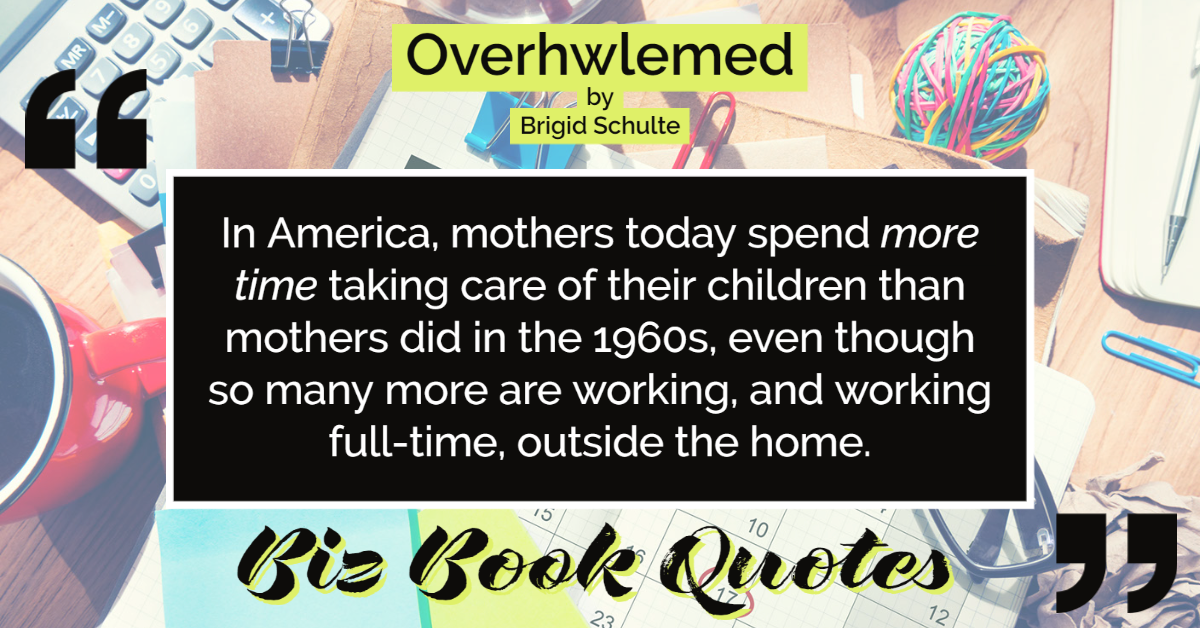 |
In America, mothers today spend more time taking care of their children than mothers did in the 1960s, even though so many more are working, and working full-time, outside the home.
|
32 |
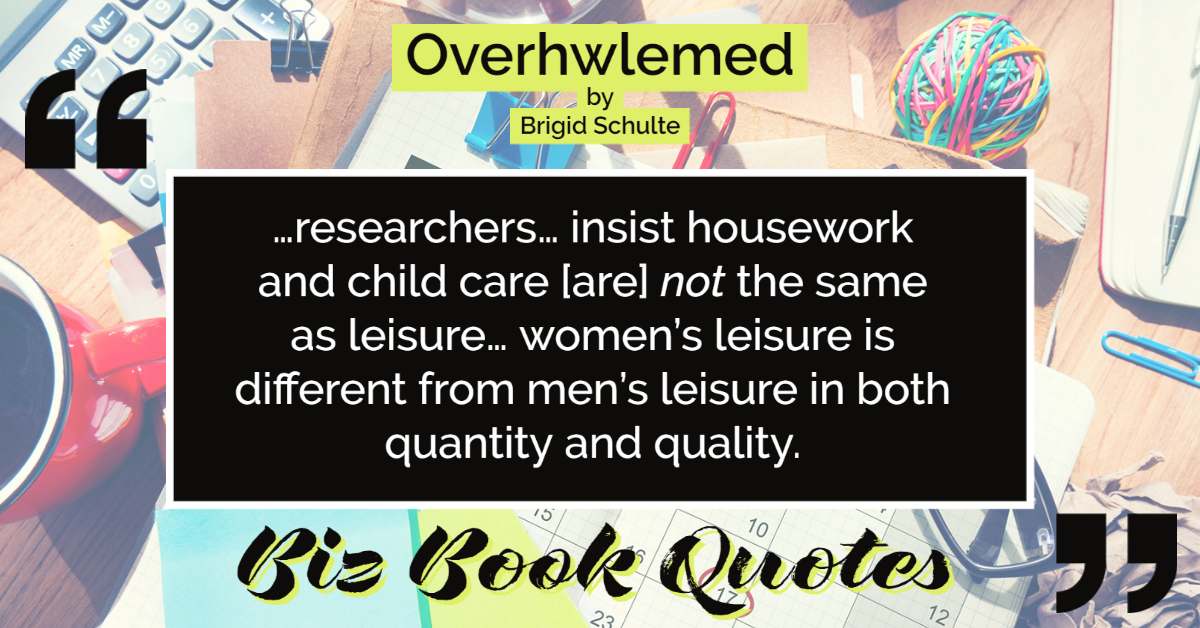 |
…researchers… insist housework and child care [are] not the same as leisure… women’s leisure is different from men’s leisure in both quantity and quality.
|
33 |
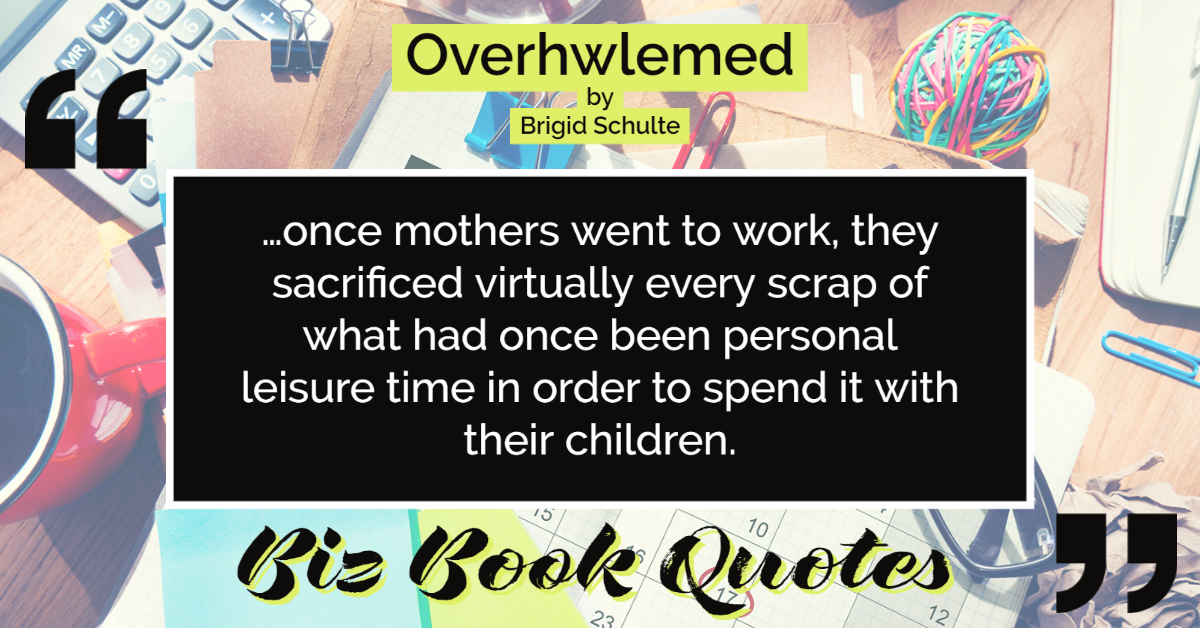 |
…once mothers went to work, they sacrificed virtually every scrap of what had once been personal leisure time in order to spend it with their children.
|
34 |
 |
Researchers have found that parents with stable child care are less stressed, better at coping, and more satisfied with their jobs.
|
113 |
 |
A rich early learning experience with loving caregivers… sets children on a path to higher academic achievement and a better chance for success in life, research shows.
|
114 |
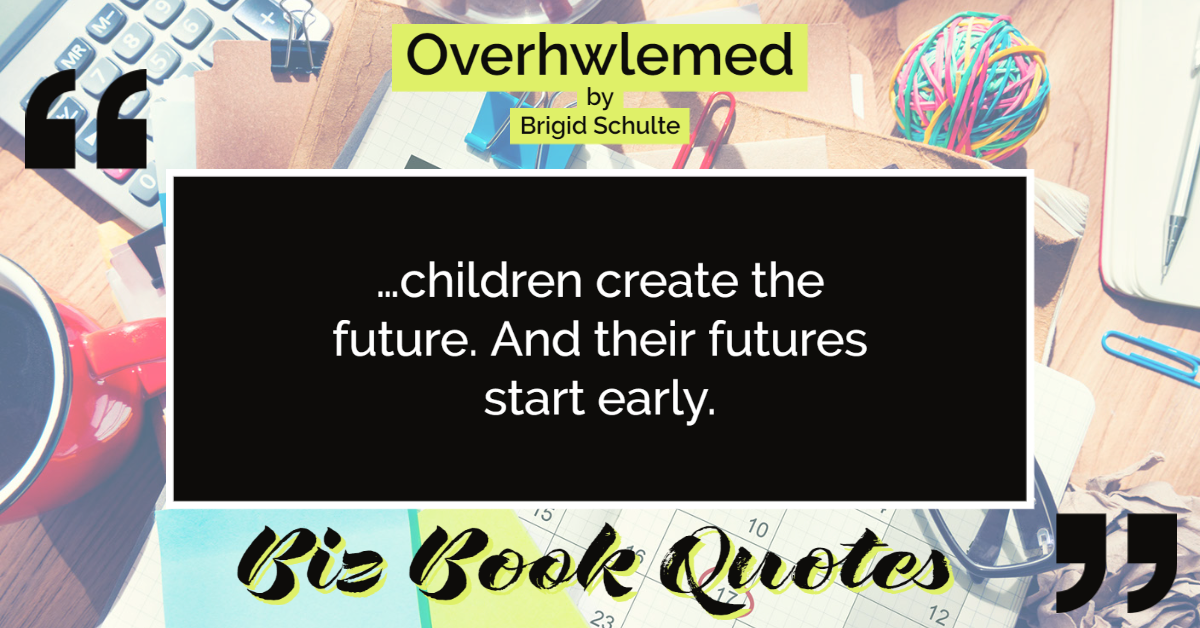 |
…children create the future. And their futures start early.
|
114 |
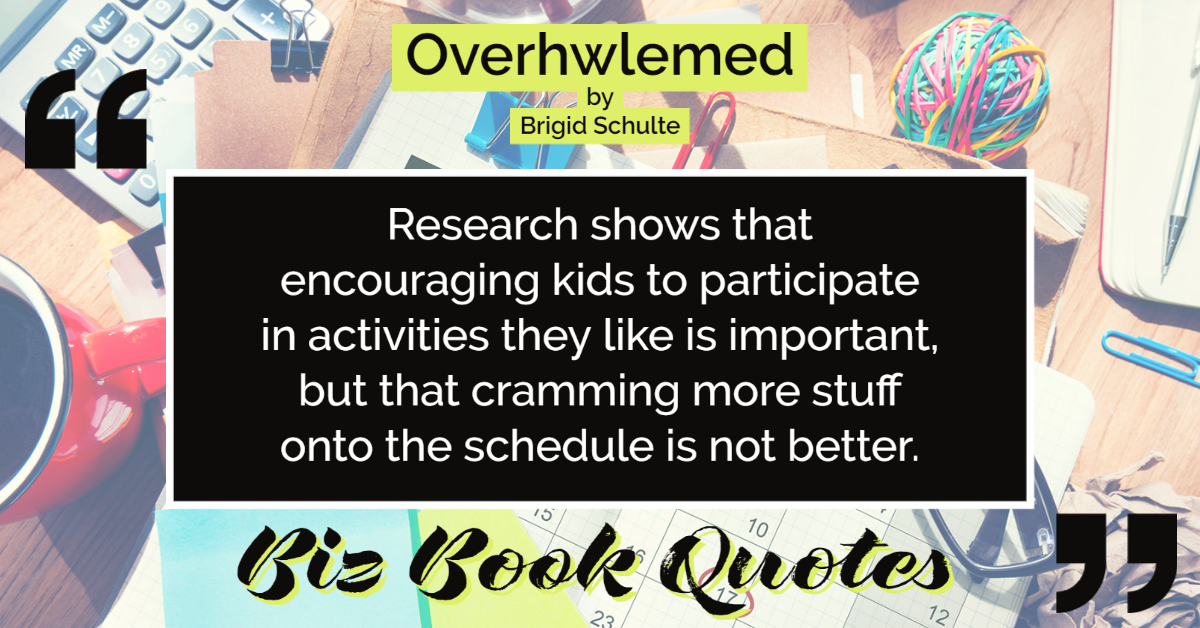 |
Research shows that encouraging kids to participate in activities they like is important, but that cramming more stuff onto the schedule is not better.
|
207 |
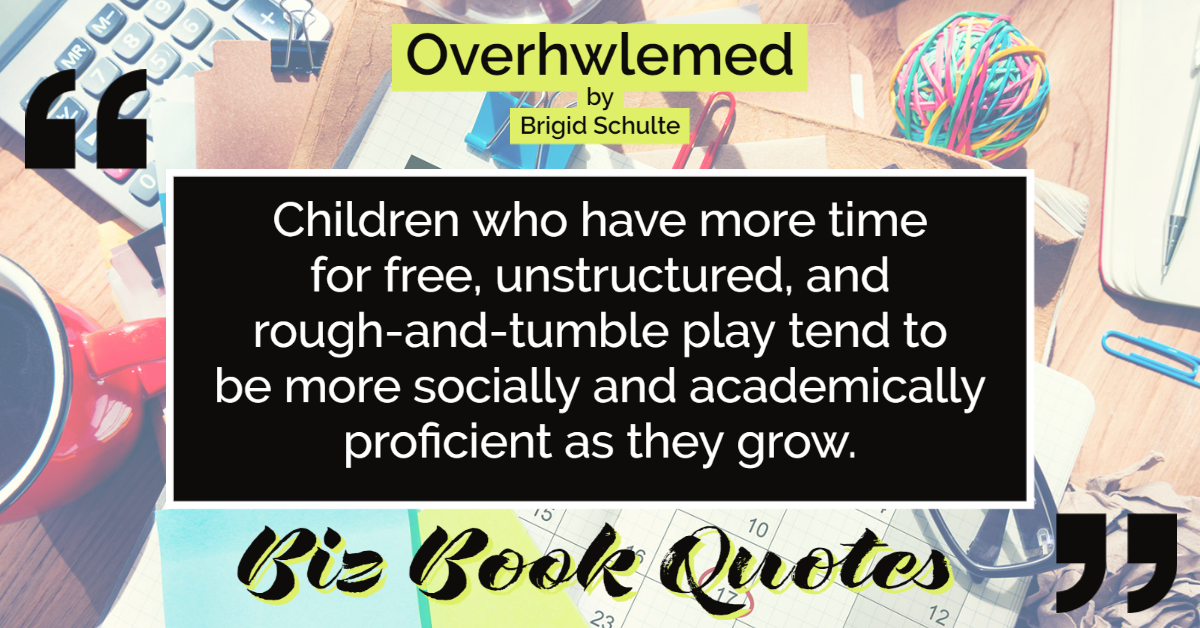 |
Children who have more time for free, unstructured, and rough-and-tumble play tend to be more socially and academically proficient as they grow.
|
244 |
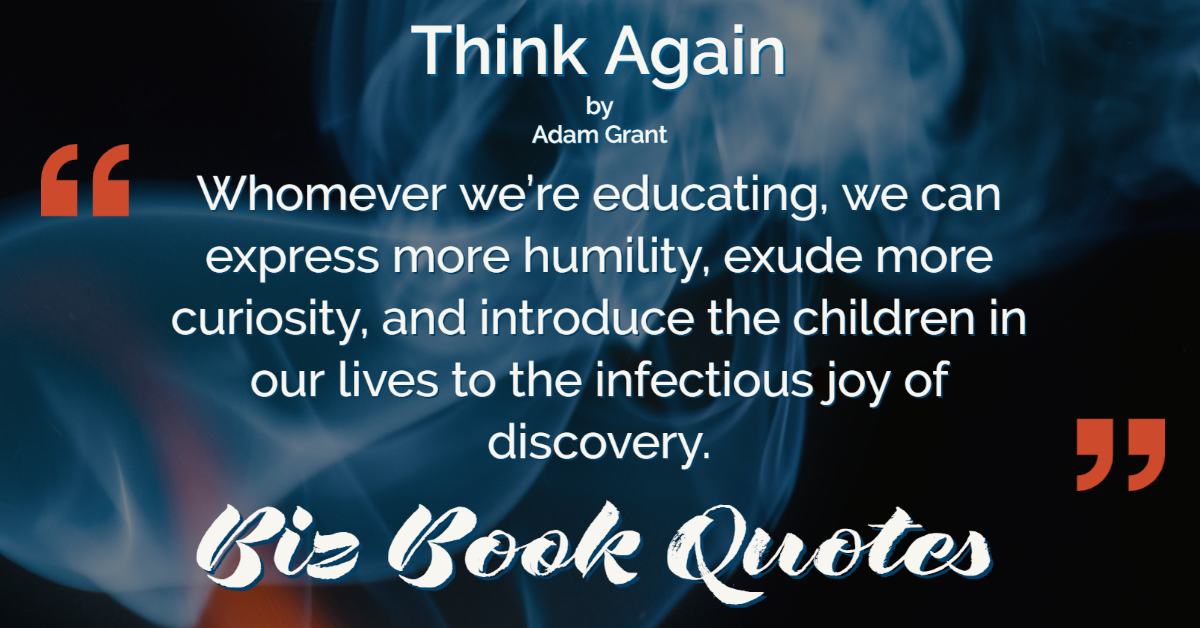 |
Whomever we’re educating, we can express more humility, exude more curiosity, and introduce the children in our lives to the infectious joy of discovery.
|
203 |